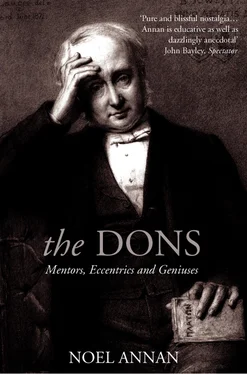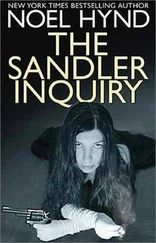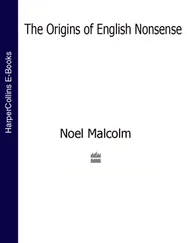Jowett did not escape censure. Pusey launched proceedings in the Vice-Chancellor’s court to convict Jowett of having published doctrines contrary to those of the Church. The prosecution failed but never again was Jowett to express his theological opinions in public. What exactly did he believe? Pusey was not the only one to ask that question. As the years passed the rationalists looked at him with suspicion. Frederic Harrison, the Positivist follower of Auguste Comte, and Leslie Stephen the agnostic, both considered that the only course open to Jowett was to become a layman. Certainly there are passages in the official biography of Jowett which suggest that he believed neither in a personal God nor in a corporeal resurrection. The best that can be said for him, Stephen suggested, was that Jowett was only following Mill’s advice to liberal clergymen, which was to stay in the Church and throw their weight in favour of tolerance in order to prevent the Church falling into the hands of fanatics. Shortly after Essays and Reviews appeared Stephen gave up his fellowship at Cambridge because he could no longer believe in the truth of Christianity; and so, a few years later, did Henry Sidgwick, whose reputation as a scholar was far higher than that of Jowett. Stephen thought Jowett should have followed his example. Should he have done so?
A don ought to revere the intellect and believe in the power of reason. Jowett didn’t. His perplexity about Christian dogma seems to have affected his attitude to the whole of knowledge. He was interested in Hegel – indeed was among the first in England ever to study him. That was as far as it went. ‘Logic,’ he used to say, ‘is neither a science nor an art but a dodge.’ Maybe: but the aphorism showed that he did not think anyone could write anything valuable. ‘How I hate learning!’ he once exclaimed. He disliked ‘useless learning’, yes – but this grew into contempt for research. To say as Jowett did, ‘One man is as good as another until he has written a book,’ was a typical piece of dreary donnish irony. Leslie Stephen’s most biting sentence on Jowett runs: ‘“He stood,” said one of his pupils, “at the parting of the ways,” and he wrote, one must add, “No thoroughfare” upon them all.’
Yet no one who reads his letters or his works can doubt that he believed himself to be a Christian, and many sincere Anglicans believed far less than he did. He was less concerned with the truth or the all-importance of Christianity than with the inadequacy of the forms and the words in which to express it. It is not fair to brand him with moral cowardice and infer that he would not stand up for what he believed to be true. In his wisdom Jowett realised that he himself had not the genius to redefine Christian doctrine; and this being so it would be better to remain silent rather than add to the din raised by Tractarians. He thought little of the best liberal theologian, F. D. Maurice: what had he done but substitute one form of mysticism for another? But the Church owed more to Maurice than to Jowett’s attempts to strip Christianity of its eschatology, its mysteries, its paradoxes and perplexities. He knew that his reputation did not rest on his published work: ‘What I do is by sparks and flashes and not by steady thought.’ His lectures were called ‘Glimpses of the Obvious’. He left his pupil T. H. Green to pursue Hegel and become the most influential philosopher in Oxford in the seventies (Jowett admired and deplored Green and was buried next to him). Augustine Birrell *put forward a worldly apologia: ‘Why should men sell out of a still-going and dividend-paying concern when they have not the faintest idea where to look for another investment for their money? Where was Jowett to go if he gave up Balliol? … So he stayed where he was and Balliol … turned out a number of excellent young fellows warranted to come and go anywhere except to the gallows and the stake.’ It was not an explanation that would have satisfied Leslie Stephen. But it satisfied George Eliot and Tennyson.
The tide had at last turned for him when in 1870 he met Gladstone and they had a long talk about Ireland. Jowett disagreed with the line Gladstone took, but Gladstone was impressed. Could he do something for Jowett? he asked one of his cabinet colleagues. He did the one thing that Jowett wanted – he got Scott out of the Master’s Lodgings by offering him the lucrative deanery of Rochester. Jowett was at last Master of Balliol, and rumours mounted about impending reforms. The ceremony of grace at hall dinner was modified and a new head chef was appointed. That was all.
Jowett was no reformer. In the early fifties he had been one of the few to applaud Gladstone for supporting university reform, though sad that Gladstone (wisely) appointed commissioners to see that the colleges gave effect to the reforms proposed by the Royal Commission instead of trusting the dons to reform themselves. At one time he advocated creating more professorships, but when Mark Pattison put forward a scheme for endowing research, Jowett opposed it. His remark that study for its own sake was a waste of time drew from Pattison the comment that Oxford resembled a lively municipal borough.
Pattison was a singularly unattractive figure. When he became a theist he spurned his sisters, who adored him, and married his wife not for love but to look after him. She was twenty-seven years his junior. Her selfishness took the form of self-righteousness; his, self-pity. Both were hypochondriacs – as John Sparrow noted – she the more resourceful and experienced of the two. Pattison blamed her frigidity for the estrangement, but when she later married Charles Dilke *(at a time when the scandal that was to drive him from public life was beginning) Dilke never complained that she was sexually inadequate. Pattison had learnt in exile to admire German universities and their outstanding contributions to learning. Having been a champion of the tutorial system and an opponent in the fifties of increasing the professoriate, he now wanted, when at last he became Rector of Lincoln, to abolish colleges, religious tests and pass degrees. He hated the new Oxford of prizes and firsts in the schools. He was the ally of the medieval historian Freeman, who as a guest at a tutors’ dinner exclaimed, ‘I have come to see the crammers cram.’ He considered a don should devote himself to learning. Oxford should become a centre for advanced studies and colleges should become specialised departments as in civic universities.
Jowett stood for the college and the tutorial system. He made enemies. No one of his character could fail to do so. The conservatives among the dons were as jealous of his success as the liberals indignant at his hostility to research. The historian and fellow of All Souls Charles Oman called him ‘a noted and much detested figure’ representing ‘modernism, advertisement and an autocratic pose, a tendency to push the importance of the college beyond the limits of its undoubted merit’. Trollope characterised him as Mr Jobbles in The Three Clerks , and W. H. Mallock mocked him as Dr Jenkinson in The New Republic . Oman, Freeman and Pattison considered a don’s first duty was to research. On the other hand, the then Dean of Christ Church, while accepting that tutors as well as professors should write books, considered the tutor’s first duty was ‘to look after his men’. The result too often was that tutors didn’t write books.
Jowett was to be remembered for ever as a character. Undergraduates appeared before him – he saw two or three every day – and the idle were slain by his sarcasm. By now he had learnt to sympathise with their pleasures. As early as 1879 Balliol held a ball and as Vice-Chancellor he defended the Oxford University Dramatic Society against the sourpuss dons like Freeman who spoke of the ‘portentous rage for play acting’. At the end of his life Jowett said, ‘At one time I was against the boat, and cared little for its success, but now I think very differently.’ He became known as ‘The Jowler’. The terrible silences disappeared so that even Pattison could say, ‘There’s affability for you.’ He was now positively genial towards the young. One of them said he tried never to quarrel: if a man insulted him he asked him to dinner. ‘You’ll do, dear boy,’ laughed Jowett. ‘You’ll do.’ It was said that if you were a peer, a profligate or a pauper, the Master would be sure to take you up. Jowett was not the first don to institute reading parties in the vacation, but he was the first head of house to know something about all his men, and a great deal about some of them. The list of Balliol graduates in 1873–8 included Asquith, Curzon, Gell, Milner, Baden-Powell, Leveson-Gower and W. P. Ker. As undergraduates they would have been invited to meet the Master’s guests – among them Turgenev, George Eliot and G. H. Lewes, Bishop Colenso, Archbishop Tait, Lord Sherbrooke and Tyndall. He made a point of mixing the different types of undergraduates at his parties – ‘Jowett’s Jumbles’, they were called – yet Balliol was judged to be the most cliquey of all colleges.
Читать дальше












